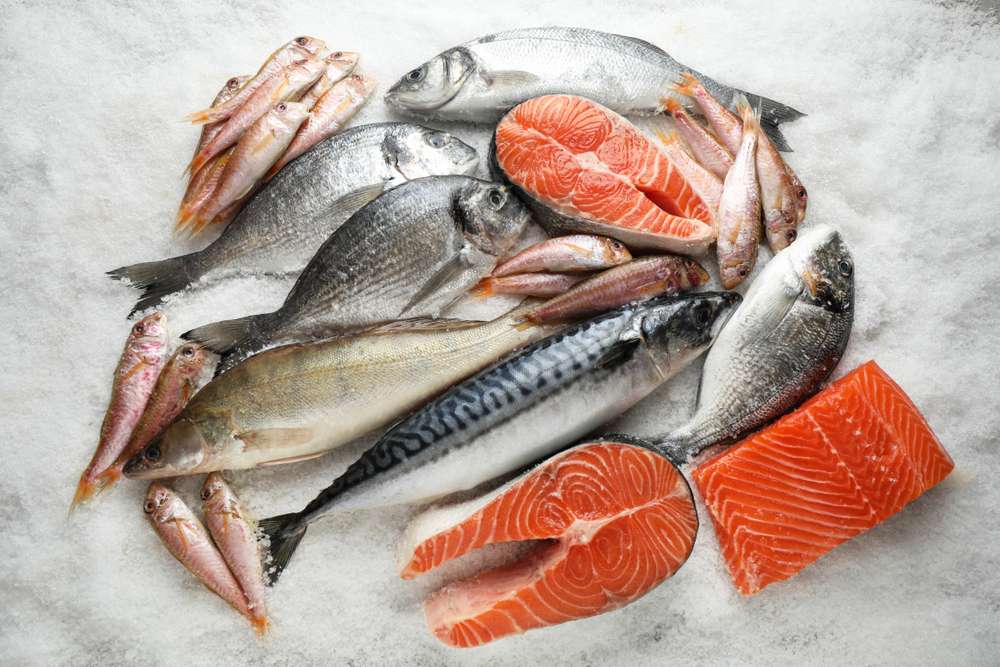- This topic is empty.
- PenulisTulisan-tulisan
- Maret 28, 2025 pada 12:11 pm #611185

Fish plays an indispensable role in global food systems, contributing significantly to the diets and livelihoods of billions of people worldwide, particularly in regions like Abuja, Federal Capital Territory, Nigeria.
Understanding the role of fish in global food security and nutrition is crucial for developing sustainable food strategies and addressing malnutrition, especially in vulnerable populations. This article will explore the multifaceted contributions of fish to ensuring access to safe, nutritious food for all.
1. A Vital Source Of High-Quality Protein
Fish is an excellent source of high-quality protein, essential for building and repairing tissues, producing enzymes and hormones, and supporting overall bodily functions. In many developing countries, where access to other protein sources like meat and dairy may be limited or expensive, fish often serves as a primary source of this vital macronutrient. For communities in Abuja,
Federal Capital Territory, Nigeria, and similar regions, fish provides an affordable and readily available way to meet protein requirements, contributing significantly to the nutritional well-being of the population. The accessibility and nutritional density of fish protein underscore its importance in addressing protein deficiencies globally.
2. Rich In Essential Fatty Acids And Micronutrients
Beyond protein, fish is a rich source of essential fatty acids, particularly omega-3 fatty acids like EPA and DHA. These fatty acids are crucial for brain development, cognitive function, and cardiovascular health. Regular consumption of fish has been linked to a reduced risk of heart disease, stroke, and certain types of cancer.
Furthermore, fish is packed with essential micronutrients, including vitamin D, vitamin B12, iodine, selenium, and zinc, all of which play critical roles in maintaining good health and preventing deficiencies. The presence of these vital nutrients further emphasizes the role of fish in global food security and nutrition, making it a valuable component of a balanced diet.
3. Supporting Livelihoods And Economies
The fisheries and aquaculture sectors provide livelihoods for millions of people globally, from fishermen and fish farmers to processors, traders, and retailers. In many coastal communities and regions surrounding freshwater bodies, fishing is a primary source of income and employment.
This economic contribution is particularly significant in developing countries, where these sectors can play a crucial role in poverty reduction and economic development.
Ensuring the sustainability of fish stocks and promoting responsible aquaculture practices are essential for maintaining these livelihoods and the economic stability of communities that depend on fish. The economic dimension highlights another facet of the role of fish in global food security and nutrition.
4. Addressing Food Insecurity In Vulnerable Populations
Fish often plays a critical role in addressing food insecurity, particularly in vulnerable populations such as coastal communities, island nations, and low-income households. In these regions, fish may be more accessible and affordable than other protein sources, making it a staple food. For children and pregnant women, the nutritional benefits of fish are particularly important for healthy development.
Ensuring access to fish can significantly improve nutritional outcomes and contribute to overall food security in populations that are most at risk of malnutrition. This makes the sustainable management of fisheries and aquaculture crucial for global health equity and underscores the role of fish in global food security and nutrition.
5. Challenges And Sustainability Concerns
Despite the crucial role of fish, the global fisheries and aquaculture sectors face significant challenges. Overfishing, habitat destruction, and climate change are threatening fish stocks and the long-term sustainability of these vital resources. Unsustainable fishing practices can deplete fish populations, impacting both food security and the livelihoods of those who depend on fishing.
Aquaculture, while offering a potential solution to overfishing, also faces challenges related to environmental impact and disease management.
Addressing these sustainability concerns through responsible management practices, effective regulations, and innovative technologies is essential to ensure that fish can continue to play its vital role in global food security and nutrition for future generations.
In conclusion, the role of fish in global food security and nutrition is undeniable. It provides a significant source of high-quality protein, essential fatty acids, and micronutrients, contributing to healthy diets worldwide, including in places like Abuja, Federal Capital Territory, Nigeria.
Furthermore, the fisheries and aquaculture sectors support millions of livelihoods and play a crucial role in local economies. However, ensuring the long-term contribution of fish requires addressing the challenges of overfishing and promoting sustainable practices.
By recognizing the importance of fish and working towards its sustainable management, we can ensure that it continues to play a vital role in feeding the world and improving nutritional outcomes for generations to come.
Read Also: Best Ways To Make Catfish Grow Faster
- PenulisTulisan-tulisan
- Anda harus log masuk untuk membalas topik ini.

